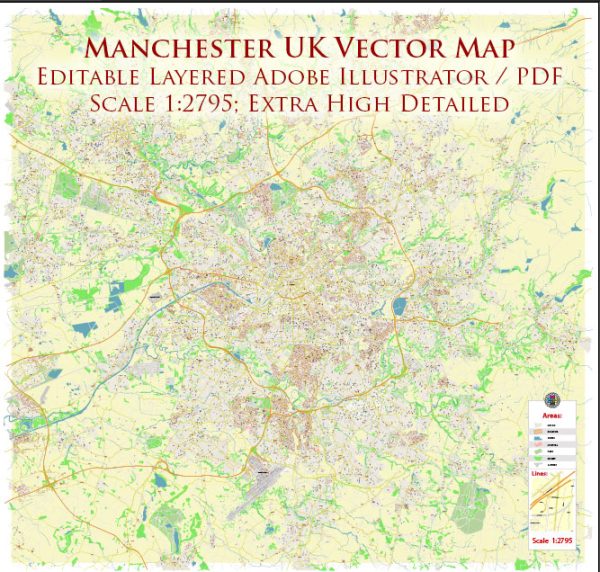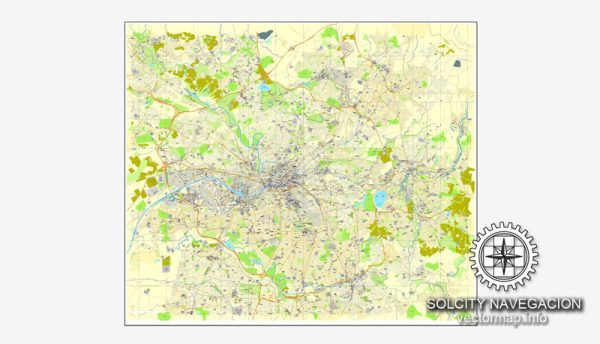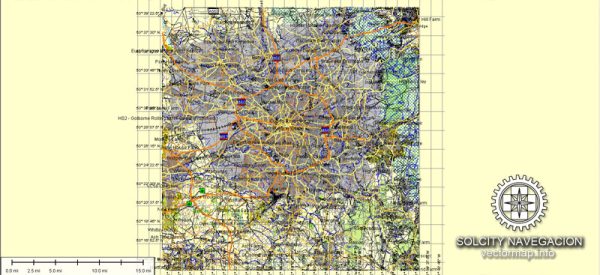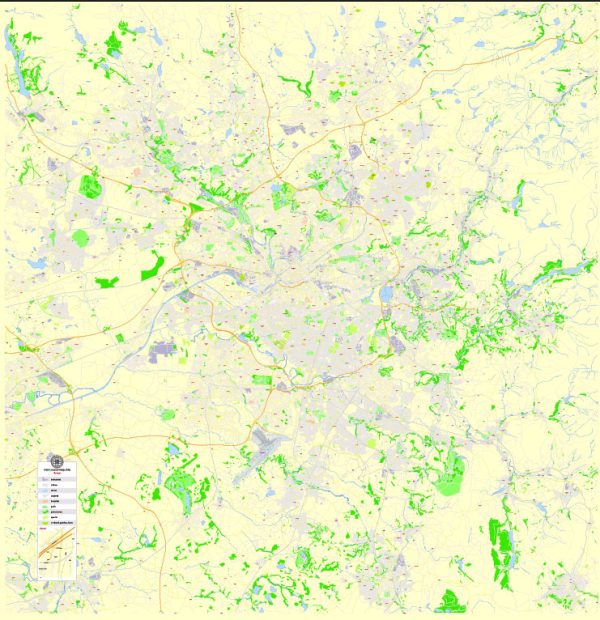Manchester, located in the northwest of England, has a rich history of urban development that spans several centuries. Here is a brief overview:
- Medieval and Early Modern Periods (Roman Times – 18th Century):
- Manchester’s history can be traced back to Roman times when it was a Roman fort and settlement known as Mamucium.
- During the medieval period, it was a market town and later became a center for the wool trade.
- The Industrial Revolution, which began in the late 18th century, had a profound impact on Manchester, transforming it from a market town into an industrial powerhouse.
- Industrial Revolution (18th – 19th Century):
- Manchester played a pivotal role in the Industrial Revolution, becoming a major center for textile manufacturing and cotton processing.
- The construction of the Bridgewater Canal in 1761, connecting Manchester to coal mines, facilitated industrial growth.
- Factories and mills emerged, and the city’s population rapidly increased as people migrated from rural areas to work in the booming industries.
- Canals and Railways:
- The city’s growth was further fueled by the development of canals and railways, improving transportation and facilitating the movement of raw materials and finished goods.
- The Manchester to Liverpool Railway, opened in 1830, was a crucial link in the expanding railway network.
- Victorian Era (19th Century):
- During the Victorian era, Manchester’s skyline changed with the construction of grand civic buildings, warehouses, and railway stations.
- The city’s economic prosperity led to the establishment of cultural institutions, and philanthropists contributed to the development of parks and public spaces.
- Post-World War II Reconstruction:
- Manchester, like many other industrial cities, suffered damage during World War II. Post-war reconstruction saw the redevelopment of areas affected by bombing.
- The mid-20th century also witnessed the slum clearance and construction of new housing estates to address the city’s housing needs.
- Deindustrialization and Regeneration (Late 20th Century – Present):
- The latter half of the 20th century saw the decline of traditional industries, leading to economic challenges and unemployment.
- In recent decades, Manchester has undergone significant urban regeneration efforts. The city has invested in modern infrastructure, including the development of the Manchester Metrolink tram system and the conversion of former industrial sites into commercial and residential spaces.
- Cultural and Economic Revival:
- Manchester has experienced a cultural and economic revival, with the establishment of media and creative industries. The city’s vibrant cultural scene, including music, art, and literature, has contributed to its global reputation.
Overall, Manchester’s history of urban development reflects its evolution from a market town to an industrial powerhouse, facing challenges and embracing change to become a dynamic and culturally rich city.





 Author: Kirill Shrayber, Ph.D. FRGS
Author: Kirill Shrayber, Ph.D. FRGS